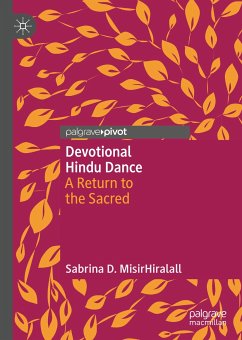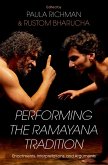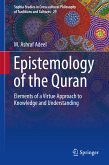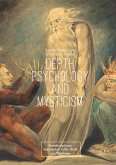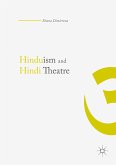"Through a postcolonial self-study, Dr. Sabrina D. MisirHiralall challenges conceptions of Hindu dance as 'culture' as she reclaims Hindu dance as a form of sacred devotional practice, with ontological, rather than just epistemological implications. She illustrates how embodied knowledge and movement can illuminate important distinctions between religion and culture." - Vanessa de Oliveira Andreotti, Professor, Canada Research Chair in Race, Inequalities and Global Change, The University of British Columbia, Canada
"This book stands at the cutting-edge of numerous directions in the study of religion and with our work as public intellectuals to cultivate the common good. Drawing upon the theopoetics of sacred embodiment and the devotional rhythms of dancing for the Divine, in combination with a dynamic decolonial approach, Dr. MisirHiralall provides us with a text which allows the reader to encounter Hinduism in an unexpected and original fashion." - Christopher Fici, Instructor, Religious Studies Department, Iona College, and Co-Director of Sacred Ecology Forum, USA
This book sheds light on the purpose of Hindu dance as devotional. Dr. Sabrina D. MisirHiralall explains the history of Hindu dance and how colonization caused the dance form to move from sacred to a Westernized system that emphasizes culture. Postcolonialism is a main theme throughout this text, as religion and culture do not remain static. MisirHiralall points to a postcolonial return to Hindu dance as a religious and sacred dance form while positioning Hindu dance in the Western culture in which she lives.
Sabrina D. MisirHiralall holds a doctorate in pedagogy and philosophy from Montclair State University. She currently teaches as an online adjunct professor for several institutions and serves as an Associate Editor for the Blog of the American Philosophical Association.
Dieser Download kann aus rechtlichen Gründen nur mit Rechnungsadresse in A, B, BG, CY, CZ, D, DK, EW, E, FIN, F, GR, HR, H, IRL, I, LT, L, LR, M, NL, PL, P, R, S, SLO, SK ausgeliefert werden.

